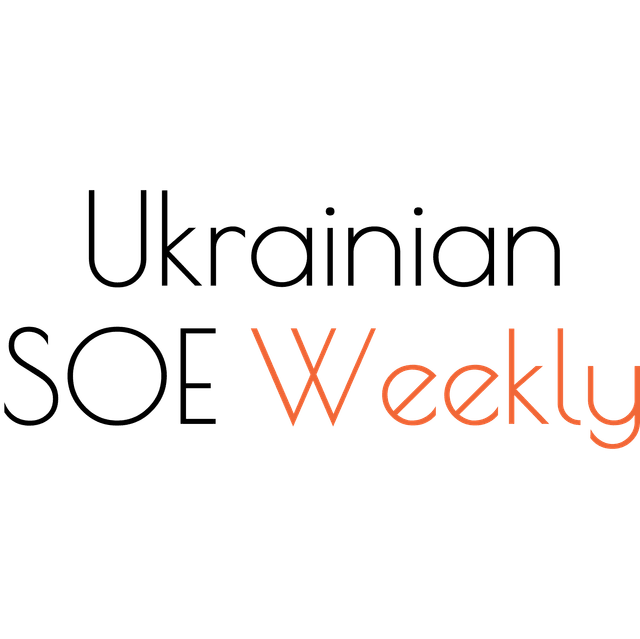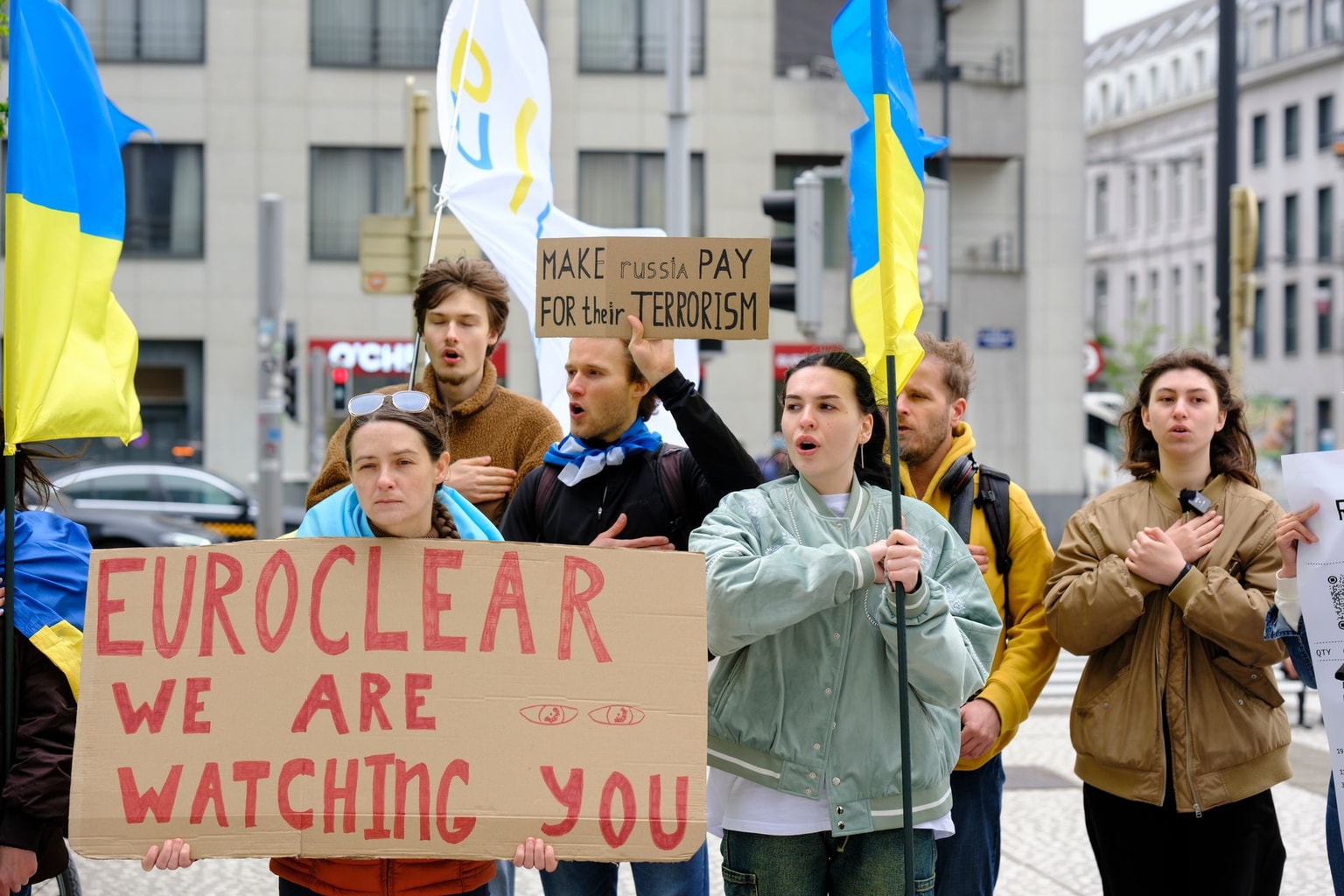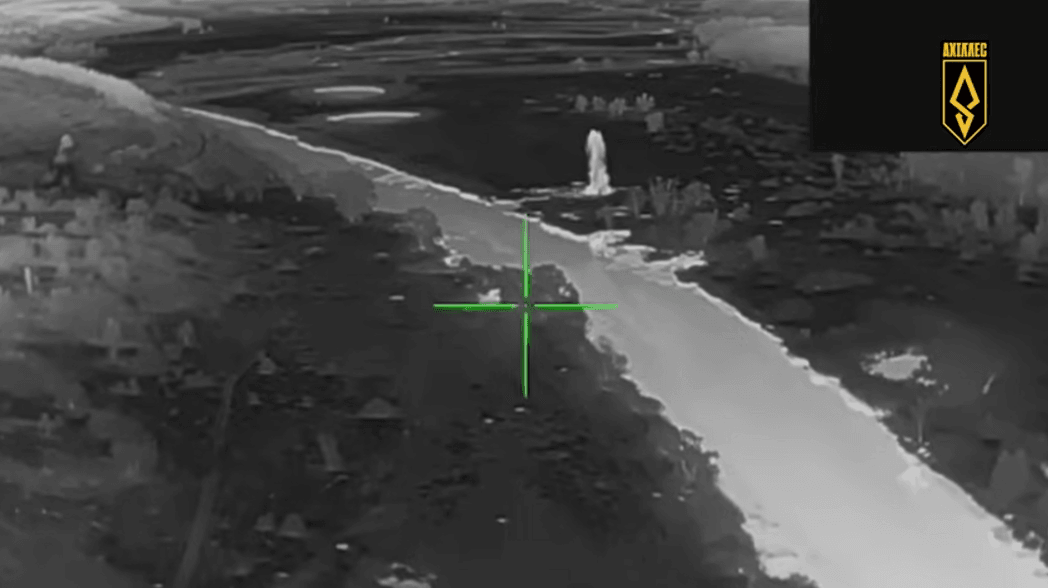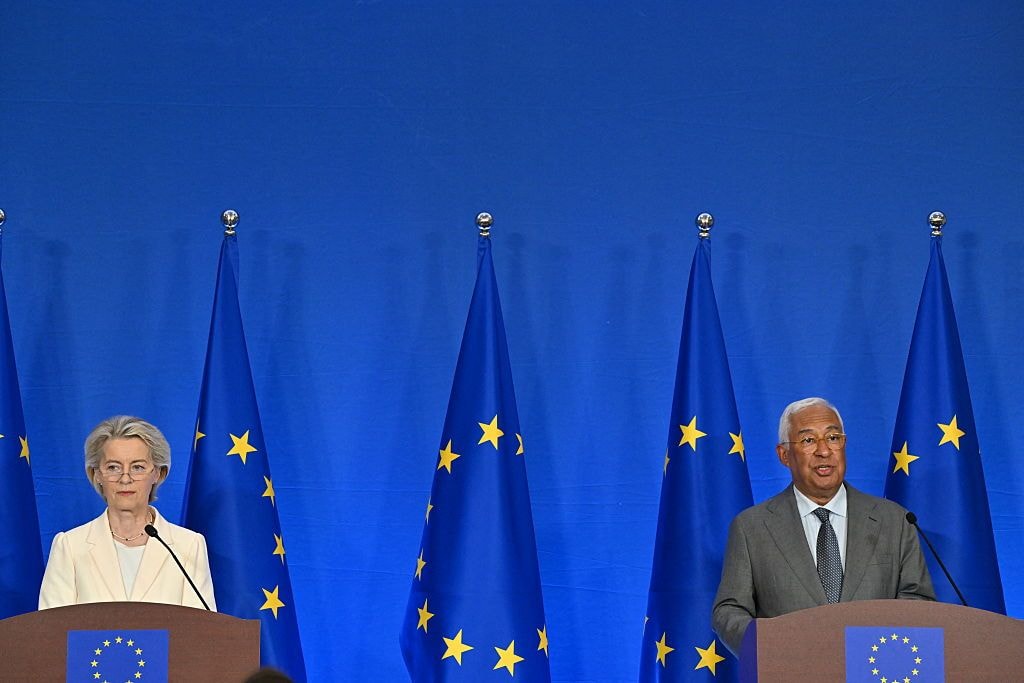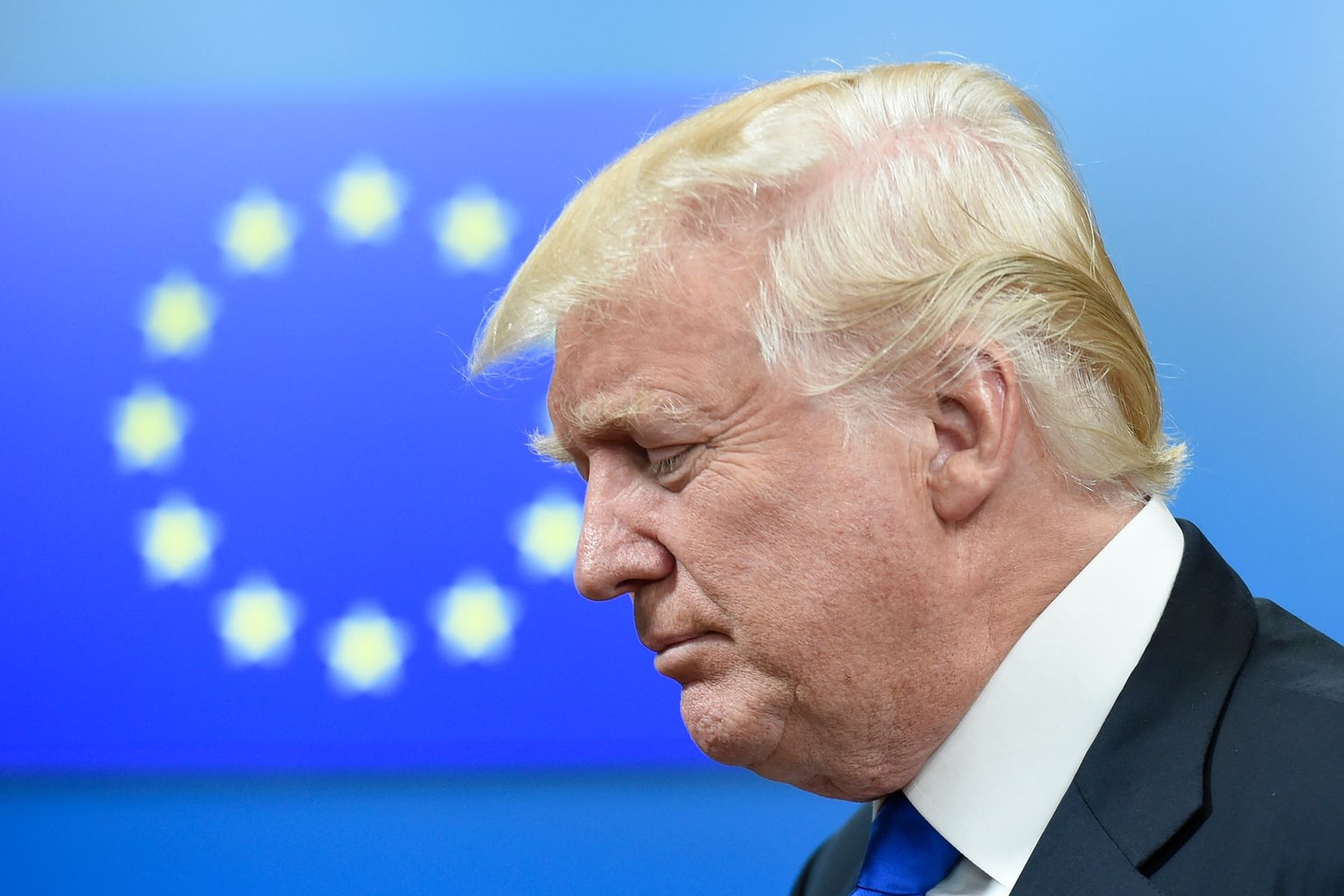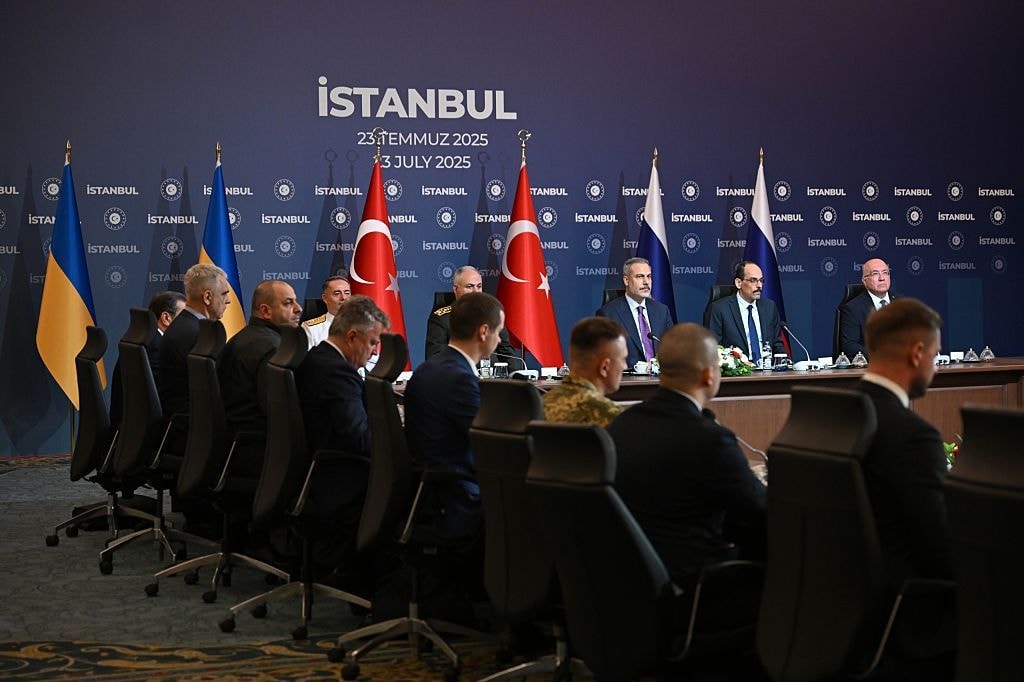Ukraine state-owned enterprises weekly — Issue 115

Editor’s Note: This is issue 115 of Ukrainian State-Owned Enterprises Weekly, covering key events in the domain of SOEs, state-owned banks, and privatization in 2023. The Kyiv Independent is reposting it with permission.
Ukrainian SOE Weekly is an independent weekly digest based on a compilation of the most important news related to state-owned enterprises (SOEs) and state-owned banks in Ukraine. The contents of this publication are the sole responsibility of the editorial team of the Ukrainian SOE Weekly. The SOE Weekly is produced and financed by Andriy Boytsun. Communications support is provided and financed by CFC Big Ideas. The SOE Weekly is not financed or influenced by any external party. Editorial team: Andriy Boytsun, Oleksiy Pavlysh, Dmytro Yablonovskyi, Oleksandr Lysenko, and Mariia Kramar.
Corporate governance of SOEs
Cabinet completes the composition of Naftogaz’s supervisory board. On Dec. 29, 2023, the Cabinet of Ministers appointed Kostiantyn Marievich as a state representative and seventh member of Naftogaz’s supervisory board. This completes the board, Naftogaz said.
Marievich had already served as a state representative on Naftogaz’s supervisory board from June 26-Sept. 11, 2019 when his powers were terminated early. Marievich served on that board together with another current board member, Ludo Van der Heyden, who had been appointed as an independent member on the same day as Marievich.
As we reported in SOE Weekly’s Issue 83, Marievich was also a state representative on the first supervisory board of Main Gas Pipelines of Ukraine (MGU) from Feb. 28, 2018 to Sept. 18, 2019. According to SOE Weekly’s estimates, he received around Hr 6.40 million (around $239,000) in this post.
In addition, Marievich served as a state representative on Ukrzaliznytsia’s supervisory board from June 20, 2018-Dec. 18, 2019.
The Cabinet also approved him for appointment as a state representative on the supervisory board of Polygraph Combine Ukraine on March 7, 2023. We are not aware if the actual appointment took place.
According to the Government Portal, Marievich joined the Cabinet’s staff in April 2016 as deputy chief of staff of Deputy Prime Minister Volodymyr Kistion. He was the State Secretary of the Economy Ministry from June 2020 to June 2021. In June 2021, he was appointed as a Deputy State Secretary of the Cabinet of Ministers.
As we reported in June 2023 (Issue 95), the Cabinet had yet to appoint the seventh member to Naftogaz’s supervisory board, five months after the appointment of six members on 24 January 2023.
The supervisory board members appointed back then included Anthony Marino (board chair), Tor Martin Anfinnsen, Richard Hookway, and Ludo Van der Heyden as independent members. The state representatives included Rostyslav Shurma and Nataliya Boyko (deputy board chair). See Issue 72 for detail.
Note that according to Naftogaz’s charter, the supervisory board should consist of seven members: a majority of independent members and a minority of state representatives. This meant that one more member of the supervisory board remained to be appointed, which could be either a state representative or an independent member.
In Issue 104, we reported that the White House sent Ukraine a list of priority reforms, which, among other things, included appointing a seventh member on Ukrenergo’s and Naftogaz’s supervisory boards. Following this, Naftogaz’s CEO Oleksiy Chernyshov said that “this is not a problem at all." “One more state representative will be added. This condition is absolutely feasible,” he said.
Cabinet officially converts Energoatom into a joint-stock company. On Dec. 29, 2023, the Cabinet of Ministers approved the long-awaited transformation. According to YouControl, joint-stock company Energoatom was registered on Jan. 11, 2024.
According to the Cabinet’s resolution, the joint-stock company is the legal successor of all property and non-property rights and obligations of the State Enterprise National Nuclear Energy Generating Company (SE NNEGC) Energoatom from the date of the company’s state registration.
The Cabinet also approved the new company’s charter and supervisory board regulations and issued an ordinance for a competitive selection of independent supervisory board members.
In addition, acting executive board members have been appointed until a permanent executive board can take their place. Petro Kotin, the CEO of SE NNEGC Energoatom, was appointed as an acting CEO of the newly established Joint-Stock Company Energoatom.
Besides Kotin, the acting members of the company’s executive board are:
- Yurii Sheiko – former Acting First Deputy CEO / Chief Technical Officer of SE NNEGC;
- Hartmut Jacob – former Deputy CEO; and
- Oleksandr Ostapovets – former Inspector General / Director for Safety.
In February 2023 (Issue 74), we reported that the Verkhovna Rada passed Draft Law No. 8067 on the corporatization of Energoatom on Feb. 6, 2023.
According to the Rada’s Energy Committee, establishing good corporate governance of SOEs is one of Ukraine’s obligations under the Association Agreement between Ukraine and the EU.
Energoatom remains 100% owned by the state, specifically the Cabinet of Ministers. Its shares cannot be privatized or divided.
As we wrote two and half years ago in Issue 40, decisions to launch Energoatom’s corporatization have been in the works for a decade, starting at least with the National Action Plan for 2012 on the Implementation of the Program of Economic Reforms in Ukraine for 2010-2014.
One year ago (Issue 79), we reported that corporate governance reform of Energoatom was among the government’s top priorities for 2023. According to the Cabinet of Ministers’ Priority Action Plan, Energoatom was to be converted into a joint-stock company by May 2023. The nuclear power operator was also slated to receive a competitively selected supervisory board with an independent majority. The deadline was November 2023.
In Issue 80, we reported that President Volodymyr Zelenskyy signed a law on the corporatization of Energoatom on March 17, 2023.
As we wrote in Issue 86, the Cabinet approved the conversion of Energoatom into a joint-stock company to comply with the law. The Cabinet established a commission for this purpose. It was chaired by Oleksii Sobolyev, Deputy Minister of Economy, and included Petro Kotin, Energoatom’s CEO, Farid Safarov, Deputy Minister of Energy, and another eight members.
As we reported in Issue 113, on Dec. 1, 2023, the Energy Ministry announced an agreement with the head-hunter firm hired to find Energoatom a supervisory board – Executive Search Ukraine LLC (doing business as Amrop). See Issue 113 for more detail.
For a detailed account on the corporatiaation of Energoatom, see SOE Weekly’s Issues 40, 41, 53, 58, 69, 74, 79, 80, 86, and 113.
Cabinet appoints the supervisory board of UDI. On Dec. 29, 2023, the Cabinet of Ministers appointed the supervisory board of the joint-stock company Ukrainian Defense Industry (UDI).
According to the Cabinet’s ordinance, the supervisory board members from Jan. 10 are:
- Oleksiy Honcharuk (Ukraine; former Prime Minister of Ukraine – from August 2019 to March 2020) – independent member;
- Serhiy Konovets (Ukraine; previously a member of the supervisory board at Ukreximbank and earlier, CFO at Naftogaz, currently, an independent member of the supervisory board at the Gas Transmission System Operator of Ukraine – GTSOU) – independent member;
- Tymofiy Mylovanov (Ukraine; President of the Kyiv School of Economics, Associate Professor of the University of Pittsburgh, former Economy Minister – from August 2019 to March 2020, former chair of Ukroboronprom’s supervisory board) – state representative nominated by the Economy Ministry;
- David Lomjaria (Georgia; a state representative on Ukrzaliznytsia’s supervisory board, Executive Vice President of Iberia Group, Managing Partner of Four Seas Trading and chair of the supervisory board of SunEnergy Bank – all based in Georgia) – state representative nominated by the Defense Ministry; and
- Linndy Smith (USA; President and CEO of an NGO called Arizona Defense & Industry Coalition – AZDIC) – state representative nominated by the Strategic Industries Ministry.
The term of office of the supervisory board members is three years.
According to UDI, on Jan. 16, Lomjaria was elected as the board chair. Board committees were also formed and the schedule of meetings for 2024 was approved, UDI added.
As we wrote in June 2023, the State Concern Ukroboronprom was dissolved and replaced by a joint-stock company called Ukrainian Defense Industry (UDI).
The concept of corporate governance reform and conversion of Ukroboronprom, including its target model and detailed action plan, was drafted by Andriy Boytsun, Oleksandr Lysenko, and Dmytro Yablonovskyi, members of the SOE Weekly team, as well as the international law firm Kinstellar, in March 2020. For a discussion of these documents, see the OECD Review of the Corporate Governance of State-Owned Enterprises in Ukraine.
We also reported that Ukroboronprom’s CEO Yuriy Husiev resigned, and the Cabinet of Ministers appointed Herman Smetanin as the CEO of newly established UDI. See SOE Weekly’s Issue 95 for more detail.
Cabinet unblocks the work of Ukreximbank’s supervisory board after more than seven months. On Jan. 12, the Cabinet of Ministers approved an ordinance allowing Ukreximbank’s supervisory board to start working despite being incomplete.
As we reported in December 2023 (see Issue 113), even though the Cabinet appointed new independent members of Ukreximbank’s board on May 30, 2023, the same ordinance blocked the board’s work.
Under the ordinance, supervisory board members serve for three years from the date on which all independent members officially assume their roles. At the same time, only five out six independent board members have been appointed after NBU’s approval. See Issue 113 for detail.
On Jan. 12, the Cabinet amended its May 30, 2023 ordinance, removing the requirement that all independent board members must be appointed in order for the board to assume its duties. Following that, the renewed supervisory board started its work on Jan. 17.
Oleksandr Bevz, Yuriy Butsa, and Viktoriya Strakhova are state representatives, Sylvia Gansser-Potts, Razvan Munteanu, Robert Kossmann, Dominique Menu, and Rostyslav Futalo are independent members.
Sense Bank appoints a new CEO. On Dec. 20, Sense Bank reported that its supervisory board had elected Oleksii Stupak as the new bank’s CEO following a competitive selection.
According to Sense Bank, the selection was carried out with the assistance of the recruitment company Odgers Berndtson, with more than 30 candidates considered in the process. Stupak’s candidacy is yet to be approved by National Bank of Ukraine (NBU).
According to Sense Bank, Oleksii Stupak has 21 years of experience in the banking sector. He started his banking career in 2002 at Pravex Bank, where he was responsible for corporate and VIP clients. Since 2008, he has held senior positions at Credit Agricole Ukraine.
Stupak joined Sense Bank in June 2019. He held the position of Corporate Business Director, after which he moved to the position of Head of Corporate Investment, Small and Medium Businesses. He has held this position to this day, the bank added.
As we reported in Issue 98, Sense Bank, previously owned by sanctioned Russian oligarchs Mikhail Fridman, Petr Aven, and Andrey Kosogov, was nationalied in late July 2023.
On July 23, 2023, the Individuals Deposit Guarantee Fund (DGF) appointed the supervisory and executive boards of Sense Bank, based on proposals from the Finance Ministry, with the approval of the NBU. On July 24, 2023, Sense Bank announced the start of work of the new executive and supervisory boards. See more in Issue 98.
As we wrote in Issue 100, as soon as Aug. 14, 2023, Sense Bank reported that its CEO Dmytro Kuzmin had resigned for personal reasons.
Deputy CEO Olena Zubchenko then started temporarily acting as CEO. The supervisory board would begin selecting and appointing a new permanent CEO as soon as possible, Sense Bank then added.
HACC sets bail for Kudin in the Sennychenko corruption case. On Jan. 17, the Specialized Anti-Corruption Prosecutor’s Office (SAPO) reported that the High Anti-Corruption Court (HACC) set bail of Hr 9 million ($240,000) for the former First Deputy Head of the State Property Fund (SPFU) Denys Kudin in the case of misappropriation of funds from Odesa Portside Plant (OPZ) and United Mining and Chemical Company (UMCC).
According to SAPO, Kudin has the following procedural responsibilities:
- to appear at every request of the detective, prosecutor and court;
- not to leave Kyiv without the permission of the detective, prosecutor, or court;
- notify the detective, prosecutor, or court of any changes in his place of residence and place of work;
- refrain from communicating with other suspects in the case and witnesses;
- deposit his passport for travelling abroad and other documents entitling him to leave or enter Ukraine with the relevant state authorities.
The obligations are valid until March 17.
As we reported in Issue 80, in March 2023, the National Anti-Corruption Bureau of Ukraine (NABU) and SAPO said that they exposed a criminal group run by the former head of the SPFU, Dmytro Sennychenko.
Sennychenko headed the SPFU from September 2019 to February 2022. He filed his resignation letter in November 2021, but the Verkhovna Rada only approved his resignation on Feb. 17, 2022.
According to NABU, the criminal group headed by Sennychenko misappropriated over Hr 500 million ($13 million) from Odesa Portside Plant (OPZ) and United Mining and Chemical Company (UMCC) throughout 2019-2021, but it did not end there. The criminal group’s members allegedly received Hr 2 billion ($53 million) in benefits while controlling the Odesa plant, NABU stated. See Issue 80 for more detail.
As we reported in Issue 83, in April 2023 the suspects in this case, including Sennychenko, were placed on the wanted list.
In November 2023 (Issue 112), we wrote that NABU and SAPO updated charges against all members of the criminal group allegedly led by Sennychenko. They are now also suspected of legalising criminal proceeds worth over Hr 10 billion ($267 million).
According to NABU, Sennychenko had nine accomplices. See Issue 112 for detail.
As we reported in Issue 114, on Dec. 12, 2023, NABU and SAPO served a notice of suspicion to Denys Kudin, former First Deputy Head of the SPFU. He also served on the supervisory board of OPZ.
Kudin then confirmed that he had received the notice of suspicion. He stated that he would legally prove his innocence.
In February 2023, Ukrnafta’s CEO Serhiy Koretskiy wrote that Kudin, who had recently stepped down as First Deputy Economy Minister, was appointed to head Ukrnafta’s department for strategy, development, and government relations. See Issue 75.
Kudin was the First Deputy Economy Minister from November 2021. Earlier, he was First Deputy Head of the SPFU. Prior to that, he worked with Koretskiy for the WOG chain of petrol stations in 2013-2018.
Banks
Ukrainian banks make a profit of Hr 130 billion in the first 11 months of 2023; state-owned banks earn more than 60% of the total. Opendatabot wrote that the top 10 banks account for 87% of the total profit, or Hr 112.95 billion ($3 billion).
The five state-owned banks made 61.5% of Ukrainian banks’ total profits.
Hr 54.46 billion ($1.5 billion), or 41.7% of the total, was earned by PrivatBank, which has consistently held the lead. PrivatBank’s earnings have doubled from Hr 26.33 billion ($169 million) compared to the first 11 months of 2021, the year before Russia’s full-scale invasion, Opendatabot added.
Oschadbank is in the second place, with Hr 11.56 billion ($308 million) against Hr 1.37 billion ($36 million) in the first 11 months of 2021.
The recently nationalized Sense Bank is third with Hr 5.25 billion ($140 million), up from Hr 3.08 billion ($82 million) in the corresponding period of 2021. As we reported earlier, Sense Bank, previously owned by sanctioned Russian oligarchs Mikhail Fridman, Petr Aven, and Andrey Kosogov, was nationalized in late July 2023. See more in SOE Weekly’s Issue 98.
Ukreximbank earned Hr 4.93 billion ($132 million) in the first 11 months of 2023, compared to Hr 2.25 billion ($60 million) in the same period of 2021.
Ukrgasbank earned Hr 4.08 billion ($109 million) against Hr 3.48 billion ($92 million), respectively.
Energy sector
Naftogaz Group paid over Hr 90 billion in taxes in 2023. On Jan. 15, Naftogaz Group reported that it paid Hr 83.4 billion ($2.2 billion) in taxes to the state budget and another Hr 6.8 billion ($181 million) to local budgets in 2023.
As we wrote in 2023, Naftogaz Group paid:
- Hr 33 billion ($881 million) in taxes for the first four months (January–April 2023, see SOE Weekly’s Issue 87);
- over Hr 48 billion ($1.3 billion) for the first seven months (January–July 2023, see Issue 99);
- over Hr 70 billion ($1.9 billion) for the first nine months (January–September 2023, see Issue 107); and
- over Hr 75 billion ($2 billion) for the first ten months (January–October 2023, see Issue 111).
Ukrnafta paid over Hr 25 billion in taxes in 2023. On Jan. 17, Ukrnafta reported that it paid over Hr 25.7 billion ($686.8 million) in taxes in 2023. According to the company, this includes Hr 4.36 billion ($116.5 million) of income tax.
As we reported in Issue 111, Ukrnafta’s CEO Serhiy Koretskiy said in November 2023 that the company paid Hr 12.3 billion ($328.7 million) in taxes in the first half of 2023, including Hr 3.3 billion ($88 million) in income tax. According to him, Ukrnafta planned to pay Hr 27 billion ($721.5 million) in taxes for the entire year 2023, including about Hr 5 billion($133.6 million) in income tax.
Koretskyi also said back then that Ukrnafta projected Hr 95 billion ($2.5 billion) in revenue in the first year after the company was seized by the state. This would double the average annual figure over the past decade, he added.
According to Koretskyi, Ukrnafta’s net profit for the first half of 2023 was Hr 14.1 billion ($376.8 million). As of November 2023, the net profit exceeded Hr 20 billion ($534 million).
We have not been able to find Ukrnafta’s audited or unaudited financial statements for 2021, 2022, or the first half of 2023 in the public domain to verify the above information.
According to Ukrainian law, joint-stock companies, particularly those publicly traded, are obligated to publicly disclose various types of information, such as their financial statements.
However, after the beginning of Russia’s full-scale invasion, the National Security and Stock Market Commission (NSSMC) allowed companies to withhold such disclosure.
In June, NSSMC decided that this exemption would be effective until Jan. 1, 2024. After that date, joint-stock companies must resume public disclosure of the above information, including information that was not disclosed during the exemption period.
As we wrote in SOE Weekly’s Issue 90, Ukrnafta’s financial plan for 2023, approved by the Cabinet of Ministers, expected Hr 74 billion ($1.8 billion) in net income from operations, Hr 12 billion ($320 million) in net profit, and Hr 25 billion ($668 million) in tax payments.
As we wrote in Issue 100, in his analysis for Forbes Ukraine, CASE Ukraine’s economist Vasyl Povoroznyk contested Koretskyi’s statements on the company’s quarterly profits, lower costs, higher production, and transparency.
He concluded that Ukrnafta’s financial performance was driven by two factors: higher market prices for petrol and diesel (45% and 54%, respectively) and Ukrnafta’s sale of gas which the company received as repayment of part of Naftogaz’s historical debt to Ukrnafta.
Povoroznyk also said that the financial reporting disclosed by Naftogaz – Ukrnafta’s majority shareholder who includes Ukrnafta’s reporting in its consolidated reporting – did not square with numbers named by Koretsky.
In Issue 68, we reported that the shares of Ukrnafta, Ukrtatnafta, Motor Sich, AvtoKrAZ, and Zaporizhzhiatransformator (ZTR) were seized “for the needs of the state” and transferred to the Defense Ministry on Nov. 6, 2022.
Former CEO of the WOG chain of petrol stations, Sergii Koretskyi, became the CEO of both Ukrnafta and Ukrtatnafta on Nov. 8 and 10, 2022, respectively. See Issue 68 for detail.
Energoatom fully paid compensation of tariffs for households under PSO for 2023. On Jan. 11, Energoatom reported that it has fully fulfilled its public service obligations (PSO) to provide households with affordable electricity.
According to Energoatom, it has paid almost Hr 128 billion ($3.4 billion) for the PSO service to the Guaranteed Buyer since the start of 2023 while the expected cost was more than Hr 7 billion ($187 million) less. As a result, the company managed to reduce the total debt for PSO services by almost Hr 4 billion ($106 million) in 2023, Energoatom added.
The company said that the PSO model was extended until April 30. The government made this decision to reduce the financial burden on households due to the difficult economic situation caused by the full-scale war. As a result, the electricity price for households would continue to be Hr 2.64 ($0.07) per kWh, Energoatom said.
As we wrote in Issue 109, after accumulating large debts due to losing the Zaporizhzhia Nuclear Power Plant, Energoatom has been able to fulfil all PSOs again since September 2023.
In Issue 110, we reported that the electricity market had a chain of debts of “everyone to everyone” worth Hr 60 billion ($1.6 billion). See Issue 110 for more detail.
In Issue 113, we reported that Energoatom paid Hr 1.8 billion ($48 million) it owed to Ukrenergo for dispatch control services in November 2023.
Defense
UDI starts a partnership with Lithuania’s innovative defense companies. On Jan. 10, UDI announced a partnership with four Lithuanian defense companies: NT Service, Brolis Semiconductors, RSI Europe, and DMEXS.
According to UDI, the letters of intent were signed on Jan. 10 during the visit of President Volodymyr Zelensky of Ukraine to Vilnius.
NT Service, Brolis Semiconductors, RSI Europe, and DMEXS specialize in the development of sights, including thermal imaging, modern remote firing systems, electronic warfare, communications, and the like, UDI explained.
As we wrote in SOE Weekly’s Issue 114, Ukrainian state-owned defense companies reported during 2023 that they started manufacturing new weapons and signed cooperation and joint production contracts with counterparts in NATO member states.
See Issues 74, 79, 88, 91, 97, 105, 108, and 111 for more detail.
Confiscation of Russian assets, nationalization, and asset seizure
Former owner of Sense Bank sues Ukraine over nationalization, demands $1 billion. On Jan. 4, ABH Holdings S.A. (ABHH), the previous nominal owner of Sense Bank’s shares, owned by sanctioned Russian oligarch Mikhail Fridman, announced that it filed a request for arbitration and a statement of claim against Ukraine on Dec. 29 2023.
According to ABHH, it seeks full compensation “for the unlawful expropriation” of Sense Bank by the Ukrainian authorities through enforced nationalization.
The claim has been filed with the International Center for Settlement of Investment Disputes (ICSID), the world’s leading body for investor/state dispute resolution under the aegis of the World Bank in Washington, D.C. The amount claimed is more than $1 billion, ABHH’s release reads.
Later, ABHH told Forbes Ukraine that it specifically demanded compensation “for the illegal expropriation of the bank." “No other form, such as the return of the bank or shares, is considered," the company said.
The NBU told Ekonomichna Pravda (EP) that it was confident in the legitimacy of the decision to nationalize the bank. Kateryna Rozhkova, NBU’s First Deputy Governor, told EP that the NBU would help the Justice Ministry to prepare for hearings on ABHH’s claim. According to Rozhkova, Ukraine has every chance of having this dispute resolved in its favor.
Rozhkova said that in deciding to nationalize Sense Bank, the regulator acted in the interest of the bank’s depositors and financial stability. By law, bank owners are obliged to maintain their capital and liquidity at an appropriate level. As Sense Bank’s former owners were under sanctions, they were unable to do so, she said.
As we reported in Issue 98, Sense Bank, previously owned by sanctioned Russian oligarchs Mikhail Fridman, Petr Aven, and Andrey Kosogov, was nationalized in late July 2023.


